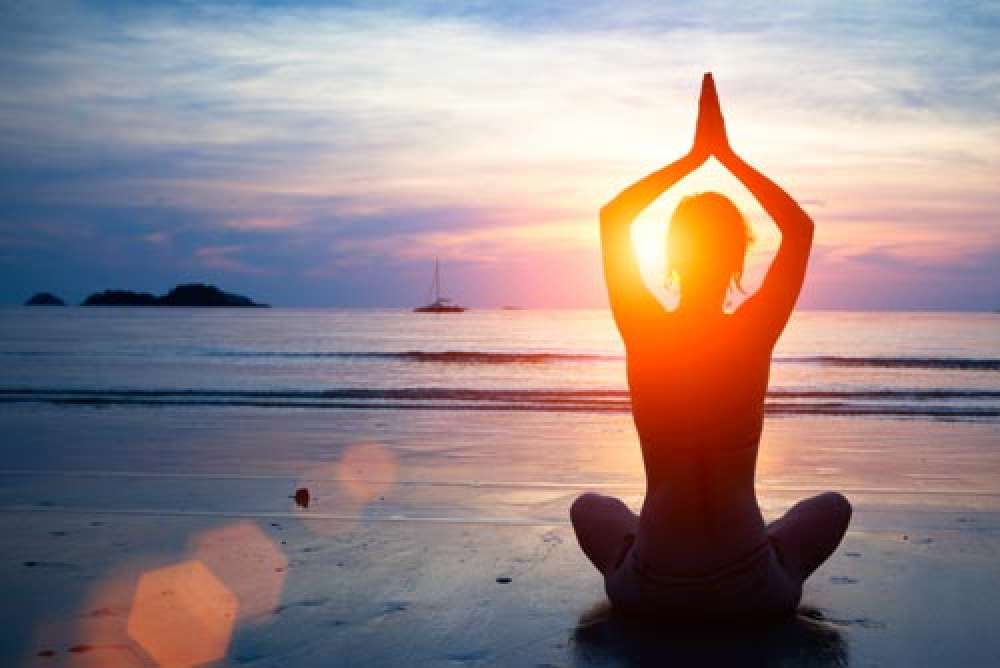There are three kinds of treatment for nearly any condition: those proven to work, those proven ineffective, and those that are unproven. My previous article explored the role of anxiety in causing substance abuse, showing that treating anxiety along with addiction improves outcomes and leads to lower rates of relapse. Treating anxiety in the context of substance abuse requires therapies that help the brain exist in non-anxious states long enough that the brain can build new neural-pathways as alternatives to the pathways of addiction. The following evidence-based treatments help the brain build new architecture that counteracts patterns of anxiety.
1. Mindfulness
The experience of mindfulness itself has been described in many ways and in many places, but essentially it is the process of overlaying your actions and emotions with understanding – it is looking at yourself through the eyes of an observer to become aware of how you move through the world. It is the ability to be present in the “now.” Likewise, various strategies exist to hone mindfulness. In a study by the University of Massachusetts Medical Center, these strategies included a self-directed body scan (awareness of sensations), sitting meditation and mindful hatha yoga. During an eight week session, participants devoted 45 minutes per day, six days per week to mindfulness practice. For 20 of 22 subjects diagnosed with anxiety disorders, gains were present not only immediately after the intervention, but also at three month and even three year follow-up evaluations.
2. Exercise
Studies show that people who exercise tend to experience less anxiety than those who do not work out. Additional research shows that adding exercise decreases anxiety; just as anxiety is not only correlated with substance abuse, but is also causative of substance abuse, exercise is not only correlated with anxiety reduction but causes it. In addition, it seems as if exercise can be used to combat anxiety in two major ways. First, exercise can be used to diffuse acute bouts of anxiety – when feeling especially anxious it may be useful to exercise. Second, a regular exercise routine may be protective against both a background level of anxiety and also future acute anxiety experiences.
3. Meditation
With or without inclusion in a broad program of mindfulness, meditation has been shown to decrease anxiety. For example, in the Journal of Clinical Psychology article entitled “Differential effects of relaxation techniques on trait anxiety: A meta-analysis,” the authors explored the effects of various relaxation techniques on clinical anxiety found that transcendental meditation outperformed other strategies for anxiety reduction, including biofeedback and progressive relaxation.
4. Yoga
In studies of populations ranging from people taking math exams to young professional musicians, yoga has been shown to decrease performance anxiety. Yoga has also been shown to be effective in reducing symptoms of other forms of anxiety. Many studies show that yoga practice generalizes into decreased anxiety both in the context of acute distress and also the longer-term experience of trait anxiety. Yoga can also relax the muscles and central nervous system, inducing overall feelings of contentment.
5. Psychotherapy
A bit like mindfulness, psychotherapy is an umbrella term. In fact, there are many forms of psychotherapy, each with its own distinct methodology and best uses. For example, the goal of some psychotherapies may be to create insight into the roots of anxiety, whereas the goal of other psychotherapies may be to desensitize the patient to the experience of anxiety, either through diffusing triggers or offering strategies to deal with the onrushing experience of anxiety. Specifically, there is ample evidence to recommend Cognitive Behavioral Therapy and Eye Movement and Desensitization Reprocessing (EMDR) for the long-term reduction of anxiety.
6. Massage
Modern research has further solidified the link between mind and body – as the body goes, so too goes the mind. If the body feels good, the mind will too. This is especially important in the context of substance abuse. For many people, massage is a sure way to please the body. For example, a study of 52 hospitalized psychiatric patients showed that massage not only led to lower reported levels of anxiety, but also lower saliva cortisol levels – a common biomarker of anxiety.
7. Acupuncture
A large body of research, for example this study from the Journal of Research in Medical Sciences, proves the benefit of acupuncture to decrease preoperative anxiety. Yet the evidence in support of acupuncture is somewhat inconclusive as acupuncture does not lend itself well to double-blind studies. A 2010 review summarizes the frustration of many studies that seek to answer the question of acupuncture’s efficacy, writing that, “acupuncture interventions employed in trials vary as do the controls against which these are compared. Many trials also suffer from small sample sizes.” This is a scientific way of saying that more study is required. That said, acupuncture has several thousand years of use and while we don’t know how acupuncture works or why, in clinical application, it is shown to be effective in treating both anxiety and addiction, as a complement to other therapies.
Both Your Mind and Body Deserve Peace
In most cases in which anxiety co-occurs with substance abuse, it is useful to treat anxiety along with addiction. The interventions described above can help to create new patterns in your mind. As your body learns to exist without substances of abuse, you can truly create new ways of being that are free of anxiety and addiction.
Other articles in this series include:
Part 1: The Link Between Anxiety & Substance Abuse
Constance Scharff has a Ph.D. in Transformative Studies, specializing in addiction recovery. She is the Senior Addiction Research Fellow and Director of Addiction Research at Cliffside Malibu Treatment Center and coauthor with Richard Taite of the Amazon.com #1 bestselling book, Ending Addiction for Good. She speaks worldwide to healing professionals on the science and spirituality of addiction recovery – from the neuroscience of addiction recovery and depression and trauma as related to addiction, to the concepts of vulnerability and hope.



